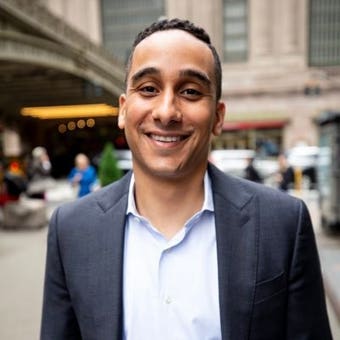Remembering fallen NYPD officer Jason Rivera
Fox News national correspondent Bryan Llenas on the outpour of grief for the NY police officer killed in an ambush on 'America Reports.'
On Friday, January 21st, two young NYPD officers, Jason Rivera, 22, and Wilbert Mora, 27, were fatally shot in the line of duty. Rivera and Mora were among three officers who responded to a domestic disturbance reported by the mother of the man that shot them—a repeat offender whom the third officer on-scene (27 year-old rookie Sumit Sulan) shot and killed.
The alleged murderer’s mother has since expressed regret and sorrow for her son’s actions, telling the New York Post earlier this week that she regretted ever calling 911.
The mother’s comments immediately brought to mind the 2004 double murder of NYPD detectives Robert Parker and Patrick Rafferty, who were also shot and killed by a repeat offender after responding to a domestic disturbance call placed by the murderer’s mother, who, two days after the shooting was also quoted in the New York Post, as being "deeply sorry" to have called police to her home.
The reason the 2004 case came to mind so quickly is that I knew detectives Parker and Rafferty, both of whom served with my father back when he was a squad detective in Brooklyn’s 67th precinct.
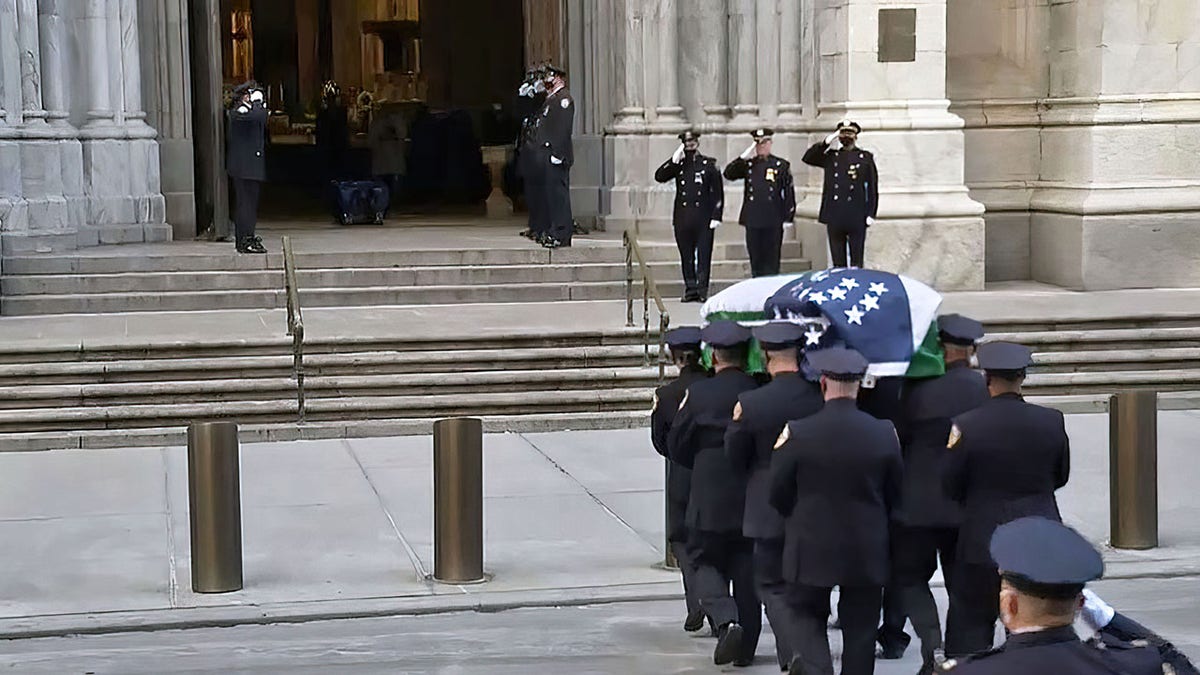
A casket carrying the body of NYPD Officer Jason Rivera body arrives at Saint Patrick . (WABC-TV)
As sad as I was for my father, whom I vividly remember being torn up emotionally by the shooting, I couldn’t help but (guiltily) appreciate how lucky our family was to have been spared the suffering I could only imagine the families of fallen officers struggle with every day.
Parker and Rafferty were shot years after I had last seen them, but I found myself closely following news of the case through their killer’s trial.
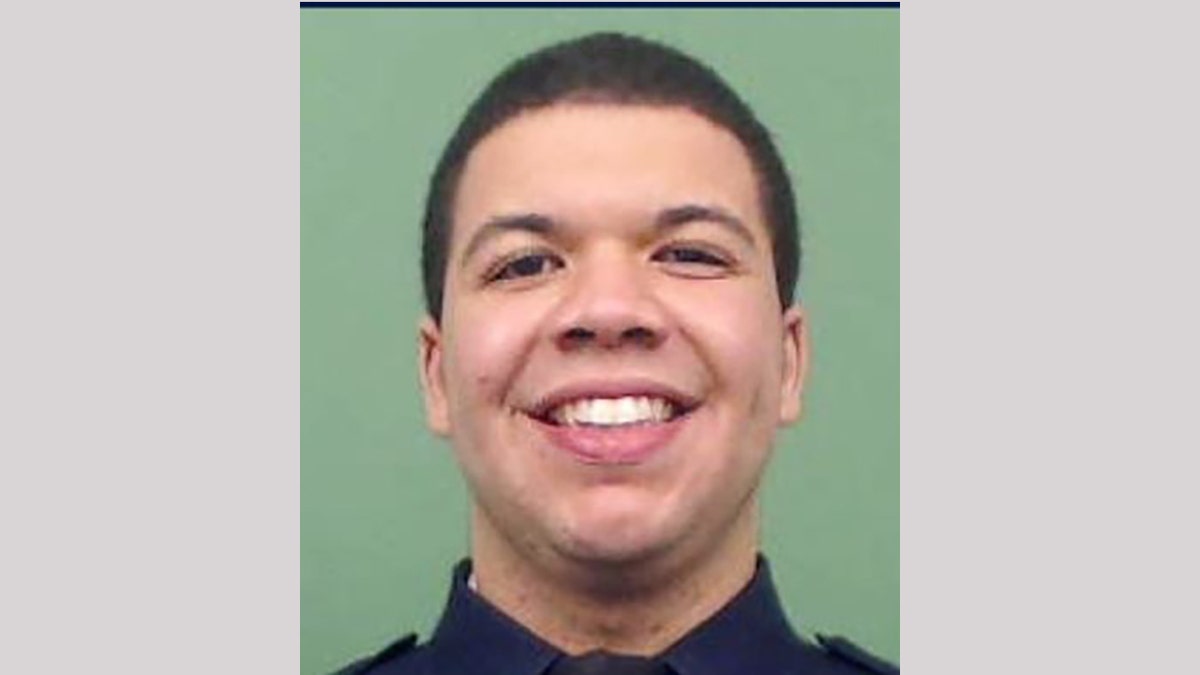
Jason Rivera (NYPD)
When I first read that their killer had been in and out of prison for offenses including sexual assault, I asked myself why the system gave him so many chances—a question the killing of Rivera and Mora (along with those of other officers killed in the line of duty) also brings to mind.
SIX LAW ENFORCEMENT OFFICERS SHOT ACROSS US IN LESS THAN 48 HOURS AS VIOLENT CRIME SURGES
We are living through a moment in which official policy, in New York and throughout many of the country’s great cities, is to systematically lower the transaction costs of criminal behavior by making criminal sanctions less likely and less harsh. This approach only feeds the decades-old problem of repeat offenders being given one "second chance" too many, which poses a real danger to those living and working in the communities in which the bulk of violent crime concentrates—including the police.
Two years ago, after a man with a lengthy criminal history opened fire on NYPD officers in the Bronx, I wrote in City Journal that "with political momentum currently in favor of leniency and decarceration, more repeat offenders will likely walk free on the streets of American cities," which would create risks disproportionately borne by cops, who, by the nature of their work, are likelier than most to interact with violent criminals.
Rivera and Mora were the 4th and 5th NYPD officers shot this month. Suspects have been identified in all but one of the shootings, and all of them have lengthy rap sheets.
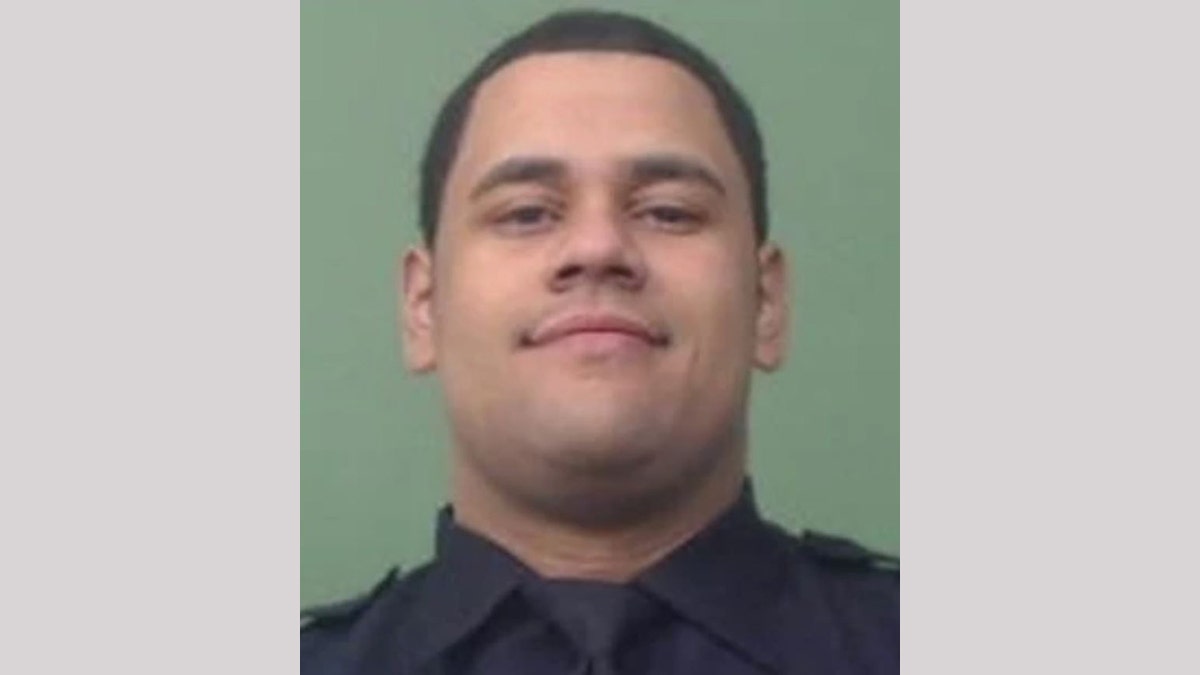
NYPD Officer Wilbert Mora died this week from injuries sustained Friday when an armed domestic violence suspect kicked through a door and opened fire. (NYPD)
On Staten Island, an officer was allegedly wounded during a warrant execution by a suspect said to have at least eight prior arrests. And a Bronx officer was allegedly shot by a 16 year-old, who, according to reports, was already out on probation for a 2020 gun charge. Despite his active criminal justice status and gun history, the teenage defendant was subsequently released on bond (In New York, defendants cannot be held in pretrial detention based on dangerousness). Alas, the lesson does not yet seem to have been learned.
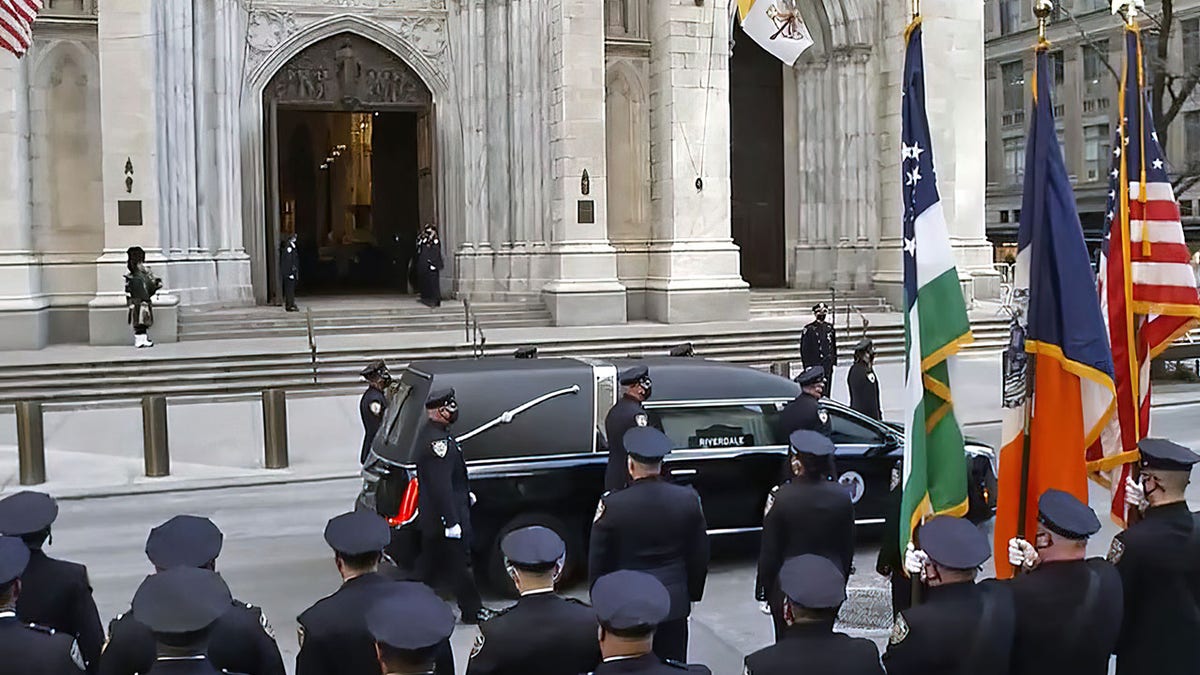
Thousands of mourners at Rivera's wake at St. Patrick's (WABC-TV)
By continuing to go to work and answering these calls day in and day out, without knowing what’s behind the doors they knock on, police serve their communities and spare us by taking on the fights most of us would shrink from.
CLICK HERE TO GET THE OPINION NEWSLETTER
In a just world, this alone would result in the policing profession being widely regarded as particularly noble. Yet, many regard it as evil—including those in prominent positions who continue to use their platforms to deride the men and women of law enforcement.
Take, for example, the comments of Harlem city council member Kristin Richardson Jordan (who represents the district in which Rivera and Mora were mortally wounded, and is on-record equating policing with slavery) to the New York Times earlier this week.
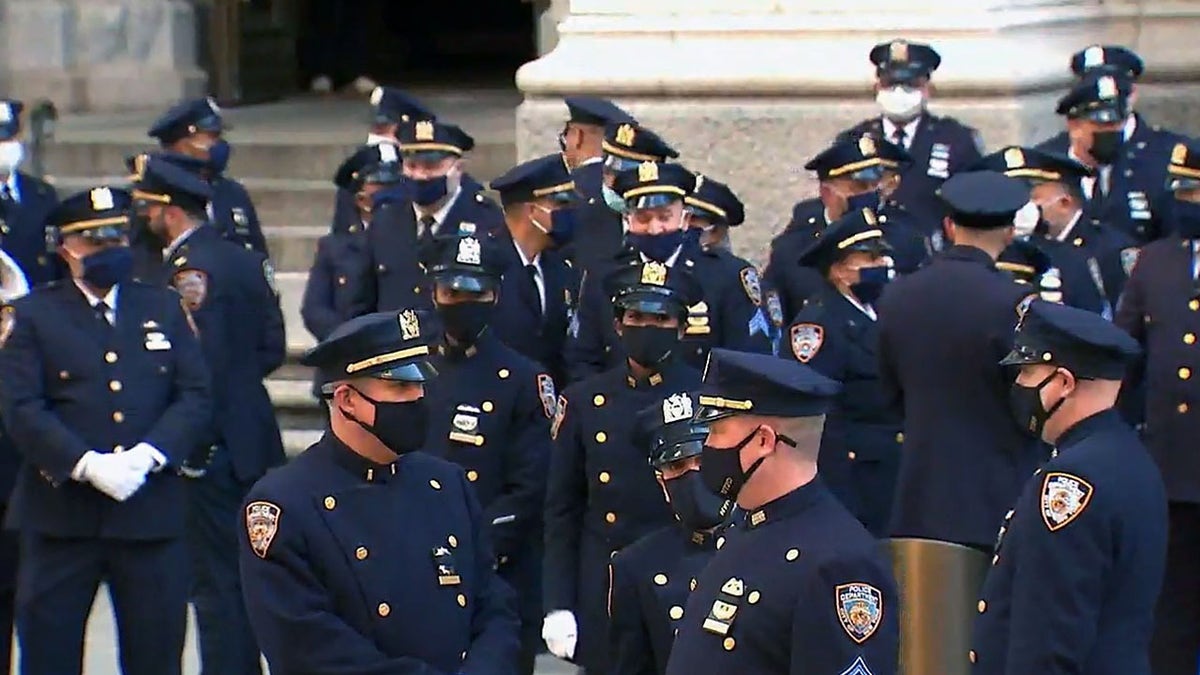
NYPD Officer Jason Rivera’s casket was transported to St. Patrick’s Cathedral for his wake.
Rather than simply condemn what seems to be a clear-cut case of cold-blooded murder, and pay respect to the bravery of the fatally wounded officers for sacrificing their lives in service to the community she represents, Jordan expressed concern that the shooting might lead to police "oppression," defended police abolition, and took care to express her condolences for the death of Rivera and Mora’s killer, whose life, she said was "equivalent" to those of the officers.
CLICK HERE TO GET THE FOX NEWS APP
Jordan’s comments must be understood in the context of a years-long campaign to smear policing as an institution characterized by unjustifiable violence and racial oppression—a campaign that only gained momentum in the wake of George Floyd’s 2020 murder by a Minneapolis Police Officer.
A society that so mercilessly demonizes the policing profession, and that allows such a toxically false narrative to fester, risks dissuading brave men and women—like Officers Mora and Rivera—from taking the noble path of public service as police officers.
Should that come to pass (and a nationwide recruitment and retention crisis suggests that it already is), I can’t help but ask the question: Without police, who will mothers and other vulnerable community members be able to count on to answer their calls for help?








































